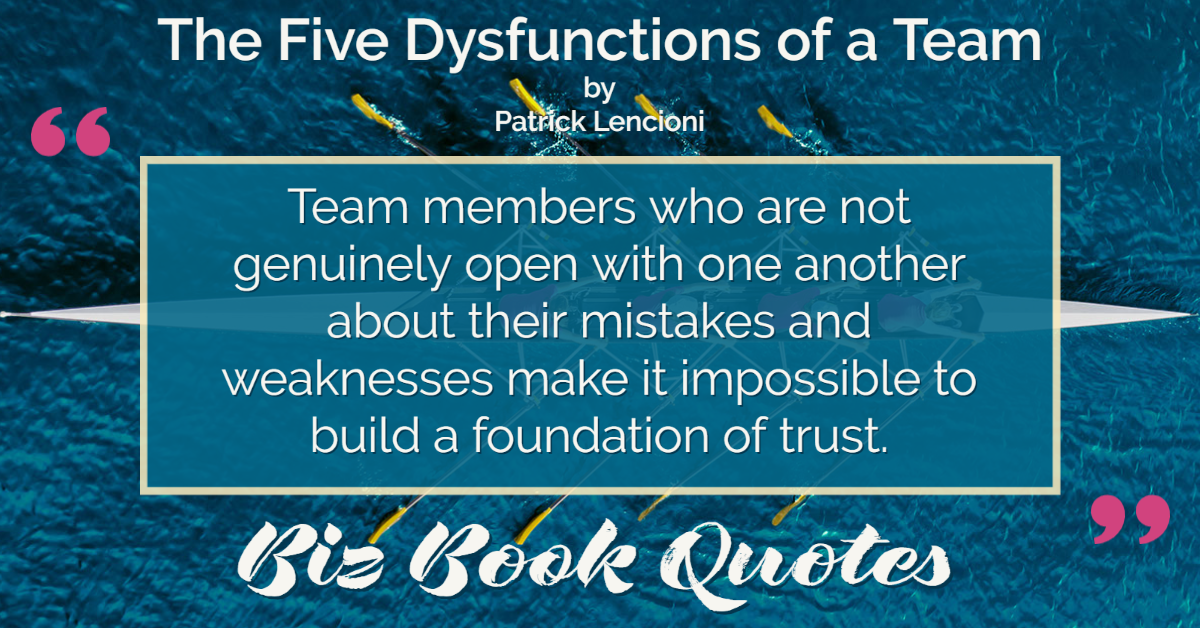 |
Team members who are not genuinely open with one another about their mistakes and weaknesses make it impossible to build a foundation of trust.
|
188 |
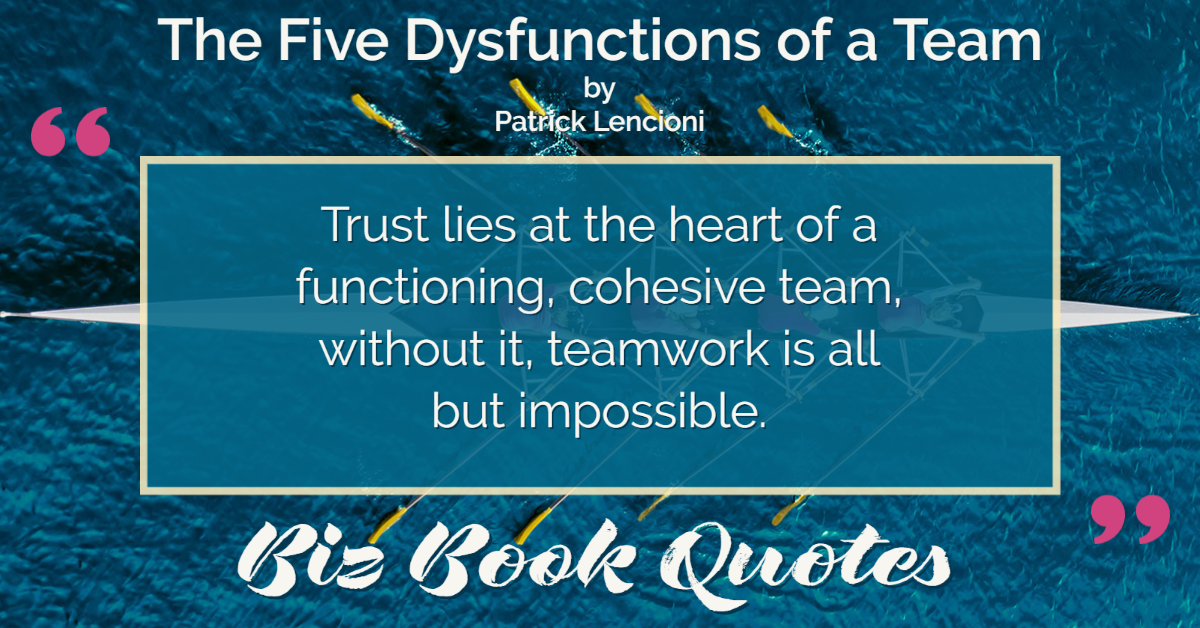 |
Trust lies at the heart of a functioning, cohesive team, without it, teamwork is all but impossible.
|
195 |
 |
In the context of teamwork, [accountability] refers specifically to the willingness of team members to call their peers on performance or behaviors that might hurt the team.
|
212 |
 |
If you can master the art of rethinking… you’ll be better positioned for success at work and happiness in life.
|
12 |
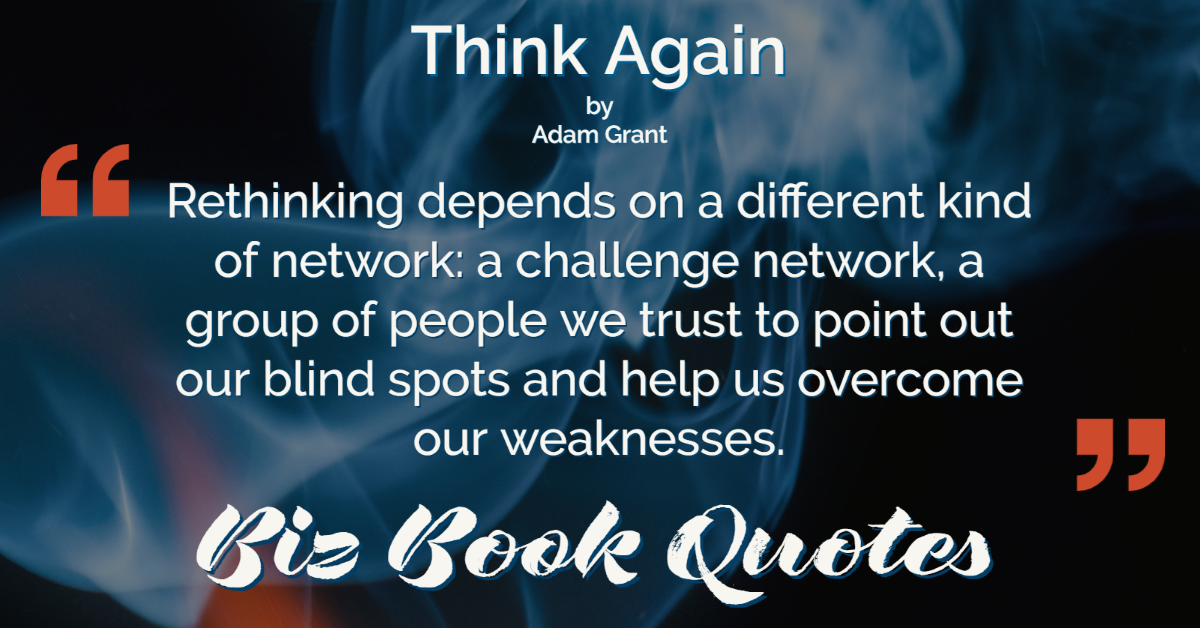 |
Rethinking depends on a different kind of network: a challenge network, a group of people we trust to point out our blind spots and help us overcome our weaknesses.
|
83 |
 |
The ideal members of a challenge network are disagreeable, because they’re fearless about questioning the way things have always been done and holding us accountable for thinking again.
|
83 |
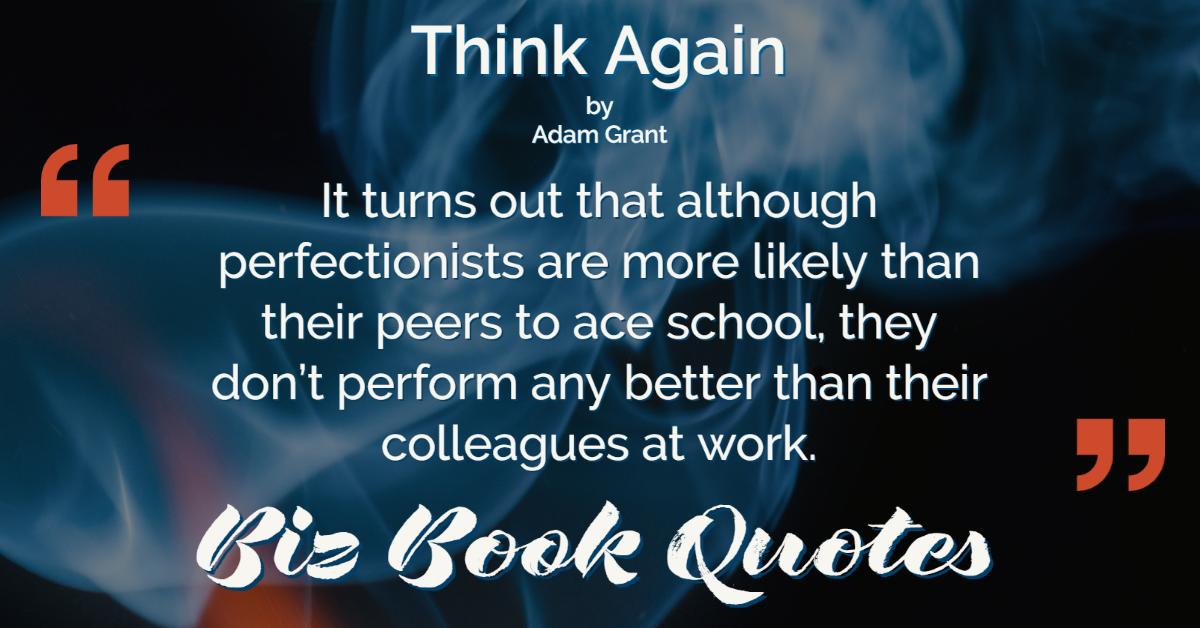 |
It turns out that although perfectionists are more likely than their peers to ace school, they don’t perform any better than their colleagues at work.
|
195 |
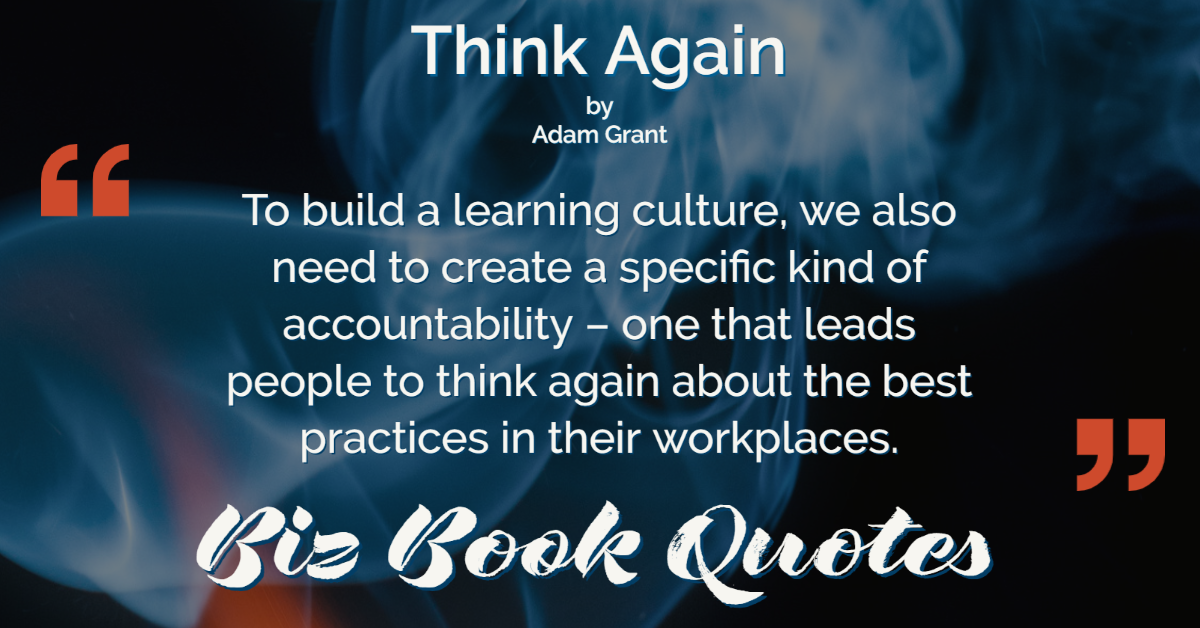 |
To build a learning culture, we also need to create a specific kind of accountability – one that leads people to think again about the best practices in their workplaces.
|
216 |
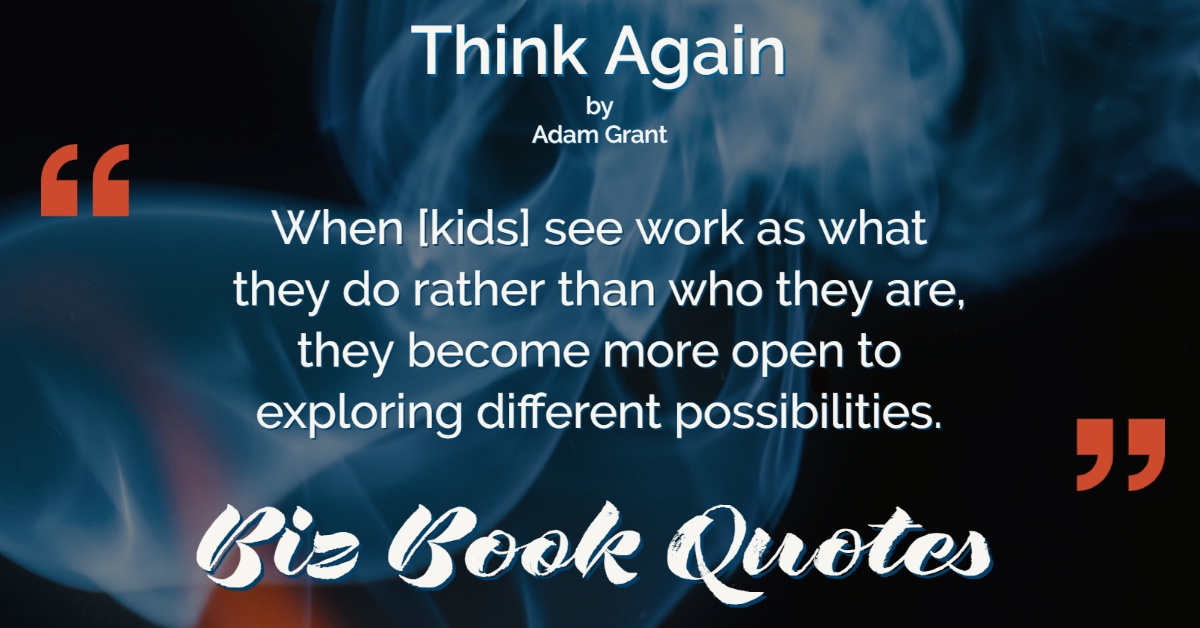 |
When [kids] see work as what they do rather than who they are, they become more open to exploring different possibilities.
|
230 |
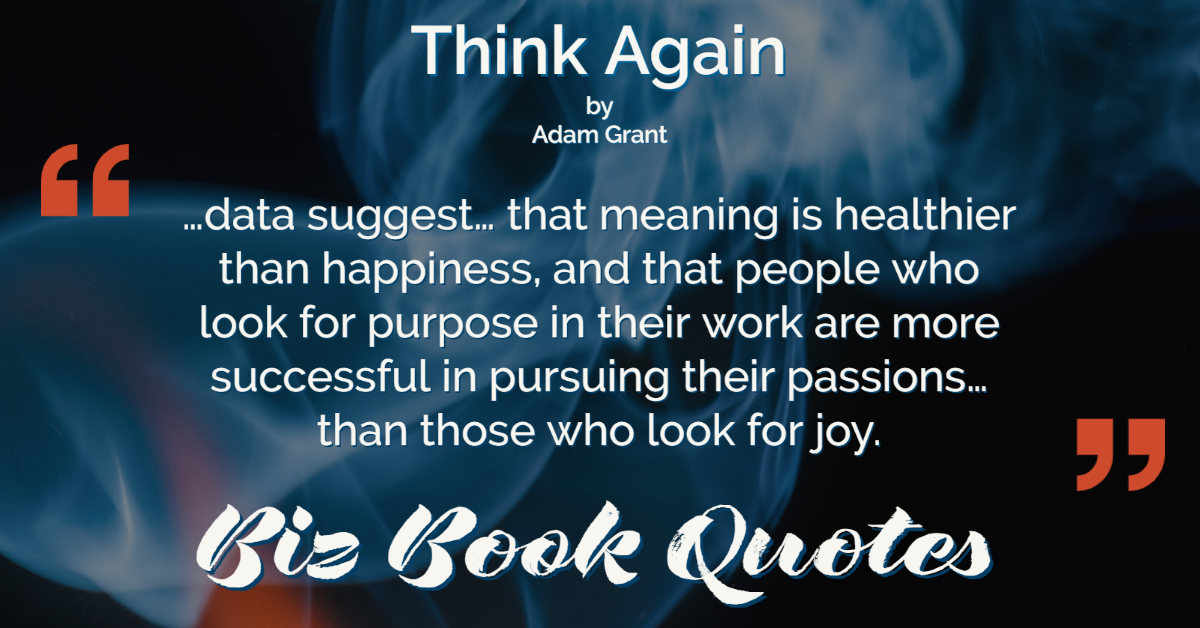 |
…data suggest… that meaning is healthier than happiness, and that people who look for purpose in their work are more successful in pursuing their passions… than those who look for joy.
|
238 |